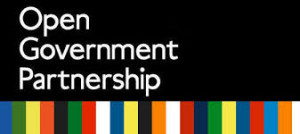 OGP is much more than Action Plans, Commitments, Policies and Best Practices. OGP is a powerful network of motivated people with a common goal, to drive a revolution around the world to make governments more open, accountable and responsive to citizens. As the case of my country Greece shows, this common goal is of even greater value in times of crisis. Open government can break the wall of mistrust and be a vehicle for economic recovery and growth.
OGP is much more than Action Plans, Commitments, Policies and Best Practices. OGP is a powerful network of motivated people with a common goal, to drive a revolution around the world to make governments more open, accountable and responsive to citizens. As the case of my country Greece shows, this common goal is of even greater value in times of crisis. Open government can break the wall of mistrust and be a vehicle for economic recovery and growth.
OGP’s main role is to support governments and civil society to bring this change. But with such a large and expanding partnership, OGP faces many challenges in ensuring continued engagement and effective coordination of government actions across international borders. In attempting to address this challenge, we soon came to realize that the network of the OGP government Points of Contacts (POCs)- who are on the frontline of making OGP work at the national level- can take up a big part of this challenge.
Following the regional POC events in Georgia, Costa Rica, and Tanzania, the Open Government Partnership Support Unit hosted the first global Point of Contact (POC) conference (link is external), a day before the 2015 Mexico OGP Global Summit, with the aim of empowering the network of POCs and to encourage the sharing of best practice and learning between all countries.
The conference provided an opportunity for 79 POCs from 48 countries to build solid working relationships with their peers and to work together with other important OGP partners such as multilateral institutions, OGP working groups, the Independent Reporting Mechanism and the international OGP Steering Committee. Participants shared inspiring stories and lessons learned from the implementation of ambitious commitments as well as discussed questions and priority issues that should be addressed and strengthened in order to reach our countries’ OGP goals.
The official working-level government representatives also found it to be a great opportunity to contribute their insights and learn about innovative practices in matters related to the OGP process such as co-creation of National Action Plans, consultation during implementation and conducting thematic workshops to source innovative ideas on particular policy issues.
During the “OGP speed networking” session, each POC created their own schedule of bilateral discussions with various OGP partners to get informed on various technical and financial resources as well as the new kinds of support that the Support Unit, OGP working groups and multilateral partners can provide.
One of the most inspiring and motivating sessions was the town-hall meeting with international Steering Committee members. POCs had the chance to discuss with current and incoming chairs from government and civil society to raise their concerns and ask questions on the future direction of OGP.
The Steering Committee members stressed the critical role of the POCs network as a means to guarantee the success of the partnership and discussed ways to further strengthen and support the POCs in order to carry the OGP initiative forward at the national level. They also mentioned that more events will be held to further empower this network and to encourage the sharing of best practices between countries, regardless of income, location or political affiliation.
In acknowledging the important role that the POC network plays, Joe Powell- OGP’s Acting Executive Director- emphasized that OGP’s success would not be possible without the civil servants within the governments who are fighting every day for greater transparency, accountability and public participation.
The success of OGP is highly dependent on the government POCs. Their role is important and multi-dimensional since they are the key actors in the transparency, accountability and participation efforts in OGP countries. Further building on this network can have a very positive effect on the efficiency and the sustainability of our partnership.
—


